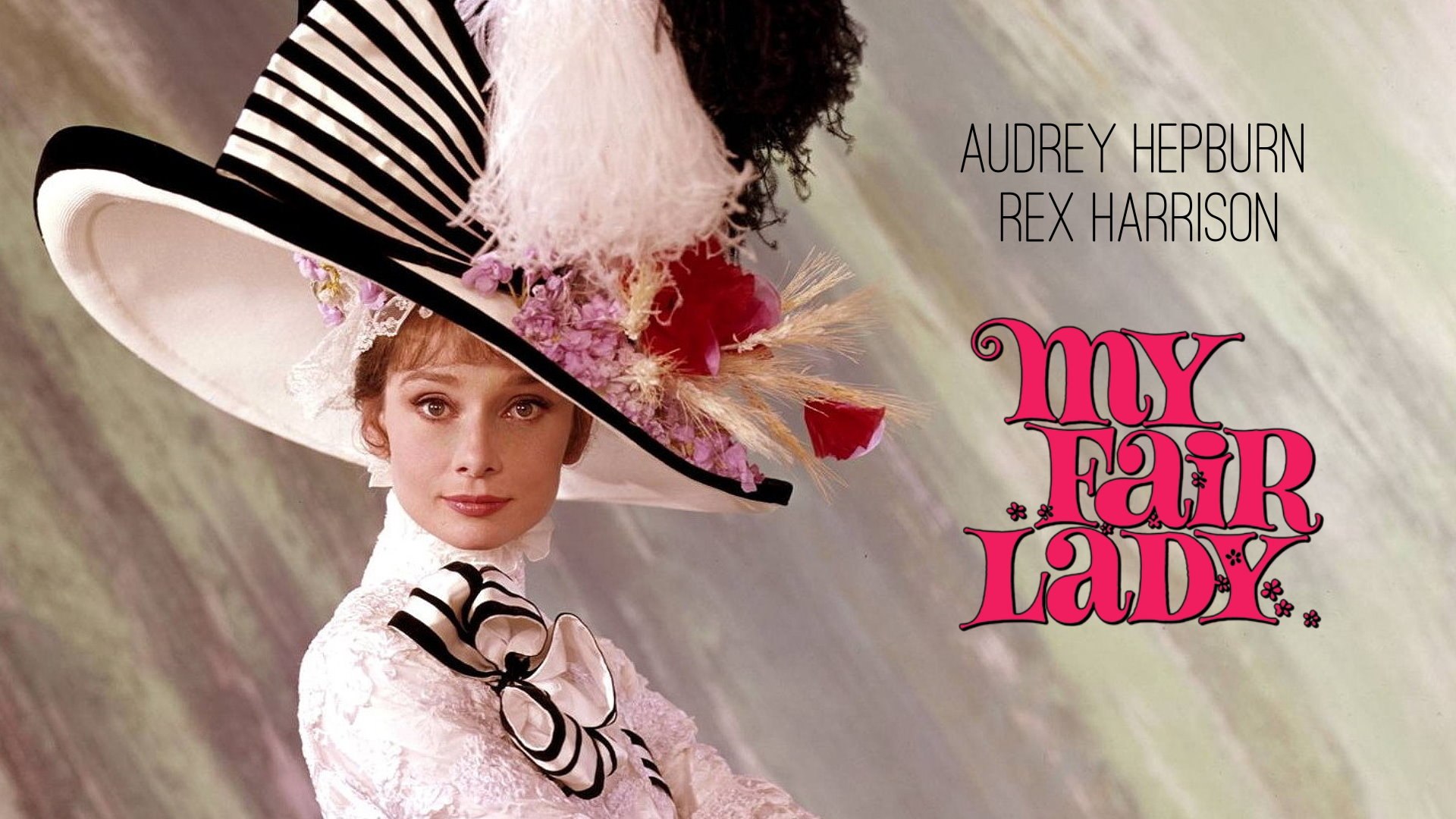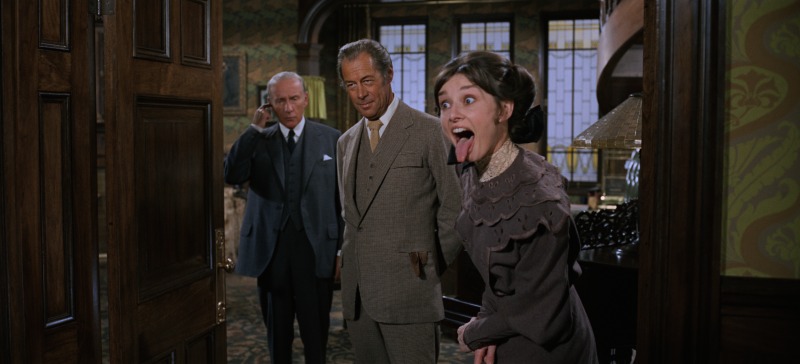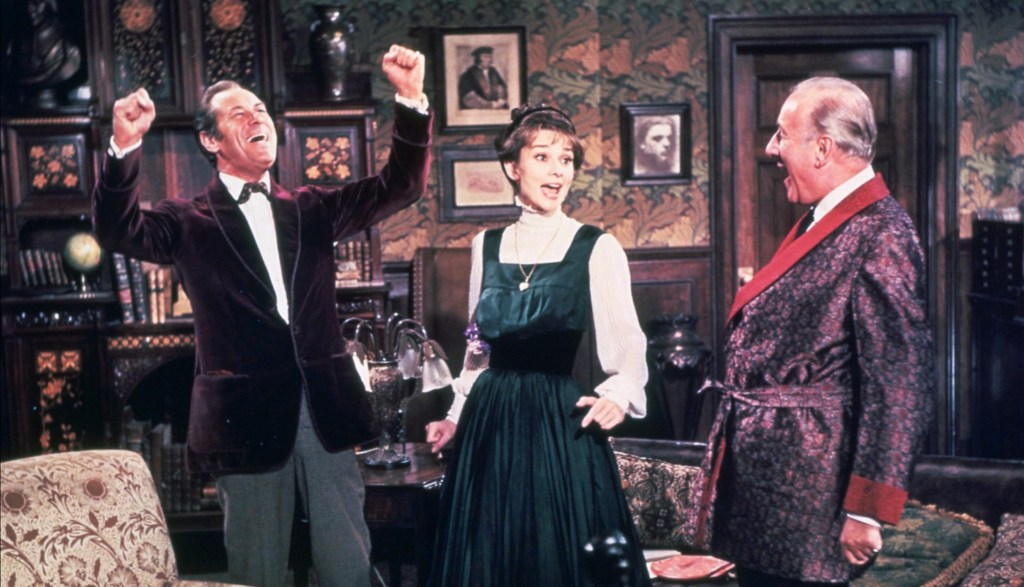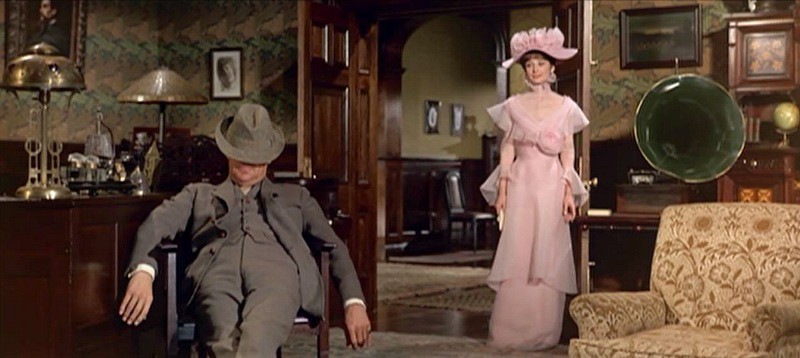My Fair Lady (1964)

“My Fair Lady” is a 1964 American musical comedy film directed by George Cukor, based on the 1956 stage musical by Lerner and Loewe. The musical itself was adapted from George Bernard Shaw’s 1913 play Pygmalion. The film stars Audrey Hepburn as Eliza Doolittle, a poor flower girl, and Rex Harrison as Professor Henry Higgins, a linguistics expert. Set in early 20th-century London, the movie combines elements of romance, humor, and social transformation, making it a timeless classic in the musical genre.
The film tells the story of Eliza Doolittle, a working-class flower girl with a strong Cockney accent, who dreams of a better life. Professor Henry Higgins, an arrogant phonetics professor, bets his colleague that he can transform Eliza into a refined lady capable of speaking proper English in just six months. Over the course of the film, Eliza undergoes a remarkable transformation, but the process reveals deeper questions about identity, class, and human relationships. As Eliza becomes more educated and self-aware, she finds herself questioning her worth and place in society, leading to a powerful and emotional conclusion.
At the heart of My Fair Lady is the theme of transformation, both external and internal. Eliza’s physical transformation from a rough, unpolished flower girl into a well-spoken lady is the central focus of the plot. However, the film also explores the internal changes Eliza undergoes as she learns more about herself and the world around her. Her relationship with Professor Higgins evolves throughout the film, as she begins to challenge his authority and question the true nature of her transformation. This raises the question of whether outward appearances truly reflect one’s identity and if changing oneself for someone else is worth the cost.
“My Fair Lady” also tackles themes of class and social mobility. Eliza’s transformation highlights the rigid class structures in early 20th-century England. The movie examines how language and manners are used as markers of social class, and how one’s ability to speak “properly” can influence their position in society. However, the film also suggests that changing one’s class status does not automatically bring happiness or fulfillment. Eliza’s struggle with her new identity points to the limitations of social mobility and the complexities of self-worth in a class-based society.

The film’s success is largely due to the incredible performances of Audrey Hepburn and Rex Harrison. Hepburn, despite not doing her own singing, captures Eliza’s charm, vulnerability, and strength, making the character unforgettable. Rex Harrison’s portrayal of Professor Higgins is both humorous and condescending, yet he brings depth to the character, showing glimpses of his emotional vulnerability. The chemistry between Hepburn and Harrison is electric, creating a dynamic relationship that drives the narrative. Supporting performances, including those by Stanley Holloway and Gladys Cooper, also add richness to the story, further enhancing the film’s appeal.

“My Fair Lady” is known for its memorable songs, such as “I Could Have Danced All Night,” “Wouldn’t It Be Loverly,” and “On the Street Where You Live.” The music, composed by Frederick Loewe with lyrics by Alan Jay Lerner, adds a layer of charm and emotion to the film. The songs are beautifully integrated into the storyline, helping to express the characters’ inner feelings and advancing the plot. Director George Cukor’s direction is flawless, maintaining a perfect balance of comedy, romance, and drama. The film’s lavish set designs and costumes also capture the opulence of early 20th-century London, adding to the film’s visual appeal.

“My Fair Lady” is a cinematic masterpiece that blends humor, romance, and social commentary with unforgettable music and performances. It remains one of the most beloved musicals of all time, thanks to its compelling themes of transformation, class, and identity. Audrey Hepburn and Rex Harrison deliver iconic performances, and the film’s stunning visuals and timeless songs make it a must-see for audiences of all ages. Ultimately, My Fair Lady continues to resonate as a thought-provoking exploration of self-discovery, class dynamics, and the complexities of human relationships.











